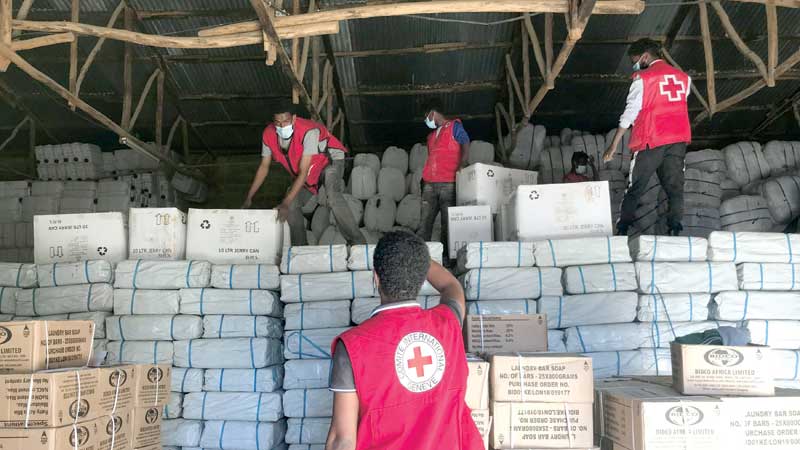

William Maclean -
A diabetic mother died as her daughter searched the capital of Ethiopia’s northern Tigray region for insulin. Women gave birth unattended in the dark because their hospital had no electricity or staff at night.
Accounts from residents, medical workers and humanitarian groups illustrate people’s plight as Ethiopia struggles to revive a heavily damaged healthcare system in Tigray three months after fighting erupted between the military and the region’s former ruling party, the Tigray People’s Liberation Front (TPLF).
Some hospitals are barely functioning, with no water, electricity or food, they said. Most were looted of medicines; staff members fled. “The health system in Tigray is reportedly nearly collapsing,” the United Nation’s Office for the Coordination of Humanitarian Affairs (OCHA) said in a Febuary 4 report.
An assessment carried out this month by international aid agencies found that out of Tigray’s 40 hospitals, only 11 were fully functional. Fourteen were not working at all, nine were partly functioning and six were not assessed, the report said.
Ethiopian Health Minister Lia Tadesse said conditions were improving rapidly. The government has sent supplies to 70 of the region’s 250 health facilities, along with 10 ambulances, she said last week.
“So many health facilities have been looted, so we are working to get more equipment to the region,” she said. “The focus is to restore services, supporting health workers to come back and ensure they have the supplies.”
Prime Minister Abiy Ahmed declared victory over the TPLF two months ago, but details of the devastation have been slow to emerge as communications to the region remain patchy, and the government tightly controls access for journalists and aid workers. Reuters has not been able to visit the region and could not independently verify accounts provided by residents and medical workers.
Prior to the outbreak of fighting on November 4, most people in Tigray had easy access to a hospital or clinic, according to the Ministry of Health.
The conflict disrupted basic services, including diabetes treatment and maternal care, leading to “too many preventable deaths”, the International Committee of the Red Cross said in a January 27 statement.
Only 30 of the region’s 280 ambulances are still available, according to OCHA. — Reuters
Oman Observer is now on the WhatsApp channel. Click here



